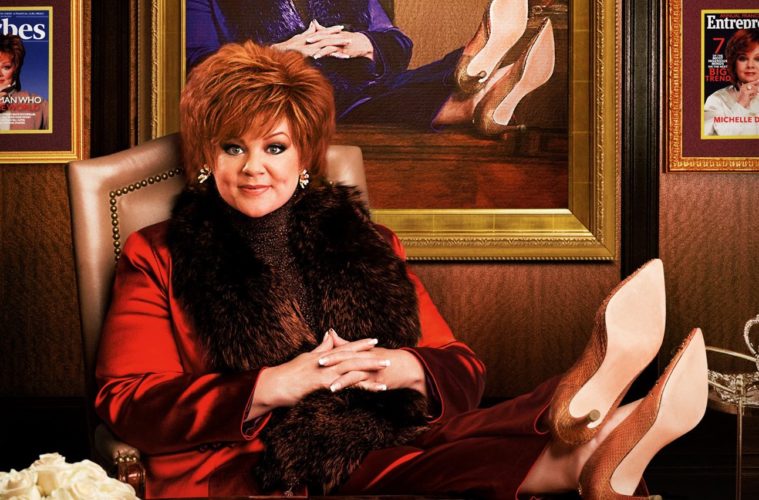If one of the ‘90s Adam Sandler movies had a weird May-December romance with a ‘00s Apatow production, the ungainly, misshapen, sterile hybrid that is The Boss might result. It has the former’s slapstick, misaimed presumption of the protagonist’s likability, and off-putting contempt for most of the characters who aren’t the leads, and the latter’s shapeless plotting and tendency to let improv-y bits go on for way too long. A large swath of modern comedy films feel like they’re merely remixing the same stable of actors, writers, directors, and producers in various permutations that are each held together by the thinnest semblance of a premise. The Boss is just the latest installment in a lineup of nigh-indistinguishable productions.

In this case, the framing sees Melissa McCarthy as Michelle Darnell, a high-powered businesswoman and motivational speaker whose empire collapses after she goes to prison for insider trading. She reemerges in the real world without a cent to her name, unable to rebuild her brand since absolutely none of her old colleagues like her. The Boss can at least be appreciated for trying to lead its main character on an honest-to-god arc, which is more than many loosey-goosey movies of its ilk can say. Michelle’s philosophy is to avoid any emotional attachment at all costs, but she’ll naturally have to overcome that if she wants to be successful again. She rebrands as a brownie magnate, of all things, teaming up with her former assistant Claire (Kristen Bell) to create an off-brand Girl Scouts troop through which to sell.
The movie’s weird apparent quasi-beef with the Girl Scouts (which is, mind you, an organization whose “issues” section on Wikipedia lists only controversy over good things they’ve done) exemplifies its supremely odd cinematic universe. I’ll repeat this refrain until the end of time, but I’ll gladly forgive any lack of connection to the real world as long as the art is good. In this case, the lack of redemptive elements means that the premise, wildly off from anything resembling how business, branding, or celebrity works, comes across as a simplistic celebration of corporate ruthlessness, despite the lip service the film pays to What Really Matters in Life.

It probably would have been best for The Boss to embrace a cartoonish carnival mishmash of ripped-from-the-headlines stuff and pure silliness. After all, the film peaks whenever it commits to Girl Scout street fights, or rooftop katana duels between McCarthy and Peter Dinklage (whose samurai-wannabe effete belongs in a better movie), or McCarthy indulging her forte of unleashing devastating barrages of creative insults. Capable ludicrousness certainly distracts from the shocking technical ineptitude on display. Even for a contemporary comedy — films assembled out of disparate “throw it in” bits in the editing room — it’s sloppy, even seeming unfinished. Spaces which seem meant for reaction beats are glossed over. Characters refer to things that never happened — Michelle scolds a preteen bully for her treatment of Claire’s daughter, except said treatment is missing, so she’s calling the kid “him,” among other things, for no reason. That The Boss forgets to make its minor villains actually villainous is a good example of its general half-assery.
The Boss opens on Friday, April 8th.

